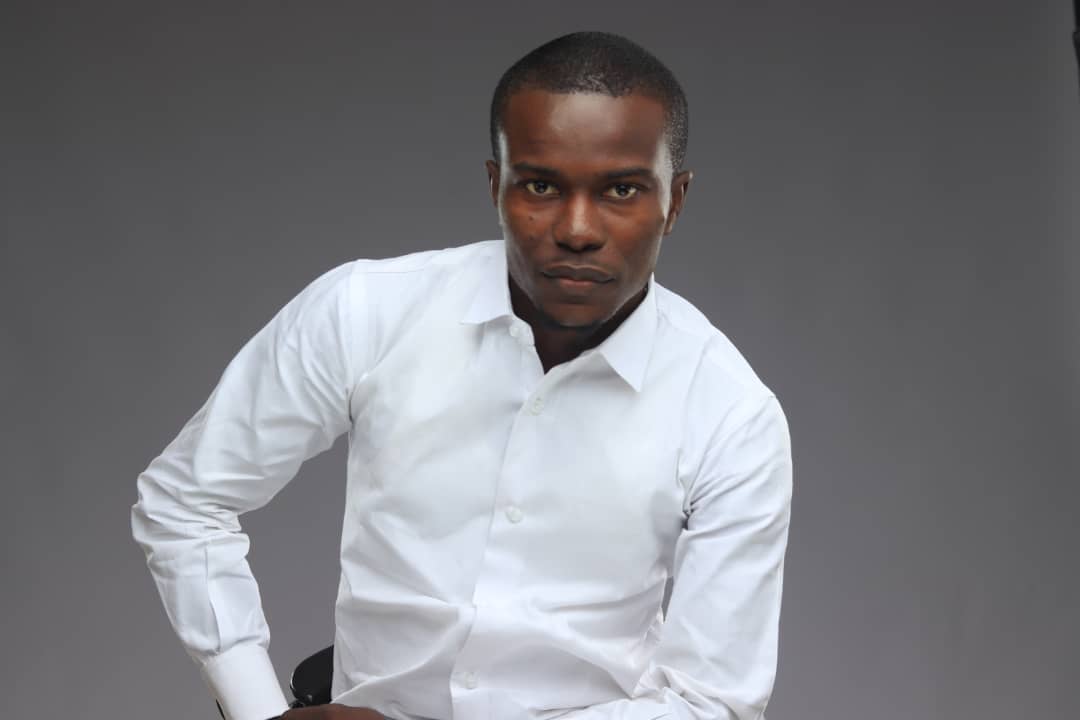Features
Mfonobong Inyang: The 2022 Kenyan Electoral Experience – A President-Elect’s ‘Ruto’ To Victory

55-year-old William Ruto has since emerged as the president-elect after defeating perennial contender, 77-year-old Raila Odinga in Kenya’s high-octane elections. The historic polls wasn’t without its fair share of intrigues and controversy. As one who has been involved in local elections in different capacities and also monitored those on the continent, I saw interesting parallels between elections in the East African country and her West African counterpart. There are definitely sober notes to take for Nigeria because leadership in today’s world isn’t necessarily by size, otherwise the elephant, not the lion would be touted as the king of the jungle. I found the similarities and departures quite didactic; offering perspectives for the African Giant to prove that she is still gianting.
Voter Participation
For such an anticipated election, one might be disappointed by the percentage drop in voter turnout from about 78% in 2017 to about 65% in the 2022 elections. It could be inferred that there were immediate and remote causalities for the considerable apathy. Anti-establishment sentiments were rife, especially with a general disappointment with the quality of governance. It could also be said that the post-election violence that greeted the last elections may have caused many to be indifferent. The role of the courts didn’t also help matters as the annulment of the last presidential elections depressed many voters who concluded their votes weren’t going to count this time; hence the nonchalance. Nigeria’s 2023 Elections in a sharp contrast, will experience the highest voter turnout ever witnessed. I earlier wrote on three principal reasons why this will be so.
The Dividends Of Demography
Young people, who Ruto dubbed “Hustler Nation” were particularly disenchanted with the status quo and this time, they decided to get involved in politics instead of just mouthing off at the old order. Very quickly, the elections morphed into a quest for a generational shift and Ruto increasingly earned the support of a large subset of younger voters. He energized his base by presenting himself as a “hustler” – mirroring the work ethics of everyday Kenyans who aren’t born into privileged circumstances or possess powerful last names. It drew a sharp contrast with the candidate of the “dynasties” – Odinga, who got the co-sign of notable people in the political class including the incumbent president. Burna Boy’s hit tune, Common Person would have been the fitting theme song, if he were running for presidency in Nigeria. The first-time contender was elected president because the ordinary people became his “structure”.
“Social Media Sensation”
Nobody gave Ruto, who once sold chickens, any chance – they expected him to chicken out of the race. The disdain with which his exponential digital footprint was received by the much ‘experienced’ politicians and their acolytes left much to be desired. The regular refrain from the traditional politicians was that “elections are not won on social media” – whilst this is true, the online polls clearly showed the direction of public sentiments and the fact that more urban voters were immersed in Ruto’s campaign. Yes, there are no polling units on social media but it gifts supporters of a candidate the ability gain a groundswell while galvanizing other guardian groups into a gestalt. For Nigeria, there are similar arguments about the influence of social media on actual election outcomes. Three quick-fire points: one, there is veritable precedence – it was a major catalyst in previous elections. Two, for every person that is campaigning for a candidate online, there are many more doing so offline. Third, the more anyone taunts any group as only being loud on the internet, the more they will take it as a challenge and double down on their offline mobilization. Know this and know peace.
The Electoral Commission
Kenya’s elections have historically been marred with disputed results with a flurry of court cases usually accompanying such outcomes. The Independent Electoral and Boundaries Commission (IEBC) in Kenya did its best this time to go full throttle on the infusion of technology and make the collation process as transparent as possible. The real-time updating of results as they trickled in did help douse palpable tensions. However, the claim of rigging by four of its seven commissions did rock the boat a bit despite the lack of concrete evidence to back such claims. Mr. Chebukati, the Chairman of IEBC did say in the midst of the chaos, “I stand before you despite intimidation and harassment. I have done my duty according to the laws of the land.” The Independent National Electoral Commission (INEC) is the biggest human factor in Nigeria’s 2023 Elections, if it discharges its duties dispassionately – the will of the people be done.
Issue-Based Campaigns
Kenyans wanted to hear the two leading candidates share their plans for one of the biggest economies in East Africa – who had to come up clutch with their messaging by address the challenges that people faced such as high unemployment, drought, insecurity, education, national debts and massive corruption in government. The need for intelligent conversations by potential African leaders cannot be emphasized, it would be a disservice to cerebral minds if they find themselves in an unfortunate position of being led by people with paucity of ideas; who cannot touch base with 21st century realities. Electorates also want to hear what the three leading candidates in the 2023 Presidential Elections have for West Africa’s biggest economy. Some politicians may be grandstanding and waxing lyrical when facing the public but a careful observation would show that they have been advised by their Campaign Teams to shun the shenanigans of distasteful photo-ops such as eating roasted corn by the roadside, handing out wads of cash to ‘random’ people in the inner cities and other pro-poor people propaganda that is conveniently curated once every four years.
Protest Votes
Ruto isn’t exactly a political neophyte; for the past ten years he has been the Deputy President to incumbent leader, Uhuru Kenyatta. However, he framed his campaign as that of an ‘outsider’. An important inflection point leading to the polls was his political fallout with his boss, who gave his political blessings to Odinga instead. Particularly Ruto’s opposition to changing the constitution and the ICC debacle of his opponents further solidified his posturing as the pro-people candidate. Being left in the lurch by the establishment meant he didn’t have a traditional voting base to rely on. However, as the Hustler-In-Chief, he took his message to the streets and appealed to regular Kenyans instead of kissing the ring of the political class – the people came through for him. Nigeria will be no different, there will be protest votes which will transcend partisan, religious and ethnic lines. These votes aren’t necessarily anti-establishment but more importantly, against bad governance.
Inclusion
Martin Wanyonyi became the first person with disability (albinism) to be elected in Kenya, after winning the Webuye East Parliamentary seat. 37 year old Johnson Sakaja was declared the governor-elect of Kenya’s economic and political capital, Nairobi. 22 year old university undergraduate, George ‘one shirt’ Nene won Elementaita ward’s MCA seat. 24 year old Linet Chepkorir became Kenya’s youngest-ever county representative in their National Assembly, spending a modest Ksh 100,000 ($840) in campaign expenses – for an unmarried woman, this is a huge socio-cultural glass ceiling being shattered. At least seven female governors were elected alongside several seats in parliament. There was diaspora voting and inmates in correctional facilities were allowed to exercise their democratic franchise. In his acceptance speech, Ruto vowed to work with “all leaders”.
In a plural society such as ours, there is a dire need for justice, equity and fairness. Woe betide Nigeria if we elect an ethnic irredentist, religious jingoist and partisan apologist for a leader in 2023! We simply cannot afford a leader that doesn’t know how to manage diversity; naked nepotism has been running circles around us for the longest time and the next election presents a great opportunity to right these wrongs. The world is not waiting for us to get our ducks in a row; we desperately need a futuristic and cosmopolitan leader!
After Zambians elected President Hakainde Hichilem, here is one tweep’s testimony: “A year ago Zambians voted out a repressive regime and some Africans flooded our comments, telling us we would regret it and that a new government would do nothing. Today, the Zambian Kwacha is the best performing currency in Africa, from the worst in 2021. This is all thanks to the Zambian youths. We knew that if we didn’t act and vote in a better leader, many of us would be forced to leave the country because it would have gone to hell. But this doesn’t mean that we won’t hesitate to vote out the new government should they f**k us over. We are not allegiant to any political party or president. Quality of life and respect for human rights is all we seek. What this has taught us is how much power we have and what we can do when we come together. Voter apathy only serves the corrupt leaders.”
Despite the outcome of the elections, it’s not yet uhuru in Kenya – there’s still a rocky road to redemption. I am also not unaware of the rise of military juntas and pseudo-democracies on the continent but like I said when writing about Bobi Wine in January 2021 following the Ugandan Elections: “…cheers to the future of Africa – new wine in new wineskins!”





















